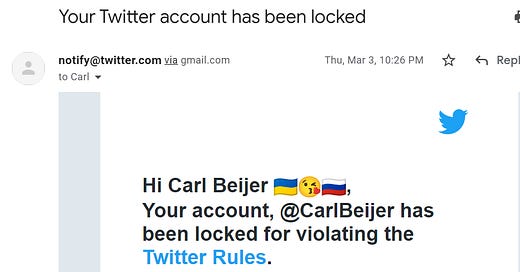Jordan Peterson is mad at the mods
Cancel culture discourse has been completely consumed by rich posters dealing with online's oldest problem.
A few months ago I got an email that most people who use Twitter will recognize: the mods had locked my account. I suppose that I could lovingly detail the contours of this injustice — the innocence of my tweet, the double standard I was subjected to, the second third and fourth order political implications of not being able to say what I said, and so o…
Keep reading with a 7-day free trial
Subscribe to Carl Beijer to keep reading this post and get 7 days of free access to the full post archives.





